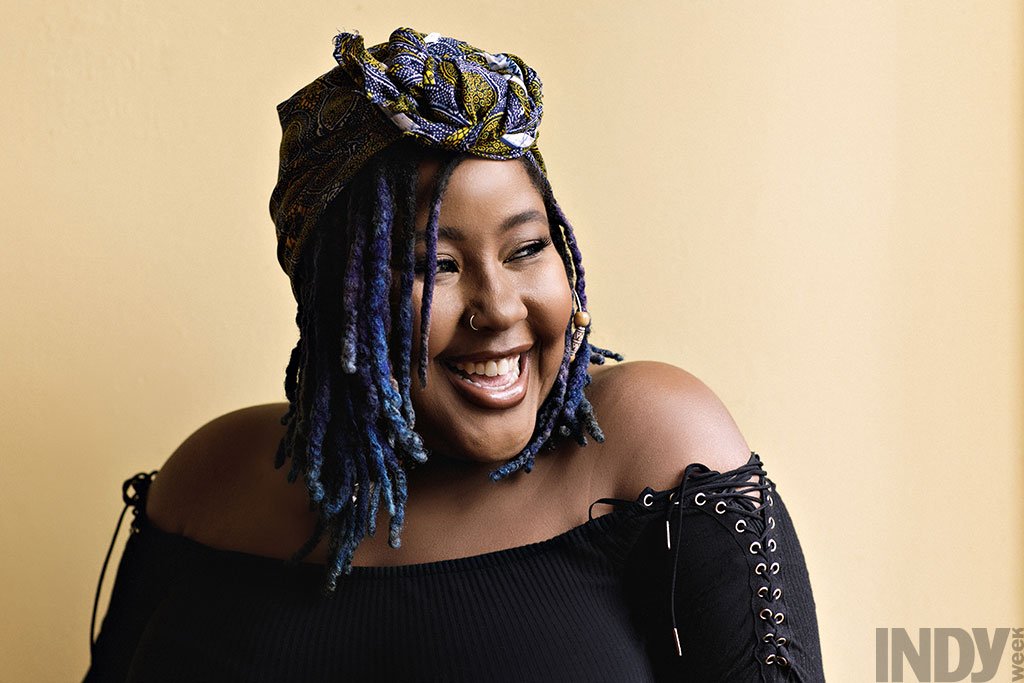Performer, Creator, Organizer, Consultant—Monét Noelle Marshall’s Many Roles All Uplift Black Art

Photo by Alex Boerner
Originally published on Indy Week, December 12, 2018. Excerpt below:
Marshall’s work spans many mediums and genres: community art experiences, choreography and dance, and bringing stories to life through the pen and on stage. Her artistry even comes forth in a simple conversation. The poetry in her words, her unique sense of style, and her bold ideas embody the essence of what it means to be an artist.
“I really feel like I didn’t have a choice [but] to be an artist,” says Marshall, whose mother—the playwright, choreographer, and director Robin Carmon Marshall—is one of her biggest inspirations. “My mother led a dance ministry at a church in New York, and she was the leader of thirty to forty women. One night, for rehearsal, she came in and washed all their feet. It had a really deep impact on how I thought about leadership.”
Years later, in 2013, Marshall founded MOJOAA Performing Arts Company with her family. Her mother co-directs; her dad serves as a producer, actor, and playwright; and her brothers give support onstage and backstage. MOJOAA was created in response to the lack of Black theater companies in the Triangle. It became a steward of history through interactive storytelling. Escape to Freedom is its annual immersive experience at Mordecai Historic Park, the largest former plantation in Wake County. It takes audiences on the journey to escape slavery during the Antebellum period.
Marshall learned early that art exists in community and should not just be saved for exhibitions and museums.
“Church is not the building, it’s the people. I want our arts institutions to move the same,” she says. “I care less about the painting or the show. What did it do for the people? If the answer is nothing, then what is actually the point of it?”
The use of art to create shared space is a thread through all of Marshall’s projects, including this year’s “Buy It Call It” performance installations. The trilogy is Marshall’s response to the systemic oppression Black artists encounter in the art world, the toll of capitalism on their minds and bodies, and the process of reclaiming one’s holiness and self-worth.
Creating three experimental performances that challenged white supremacy in art spaces was a bold decision, resulting in necessary honest dialogue.
“Her organizing and interdisciplinary performance work demand that people unpack how patriarchy and anti-Blackness show up in their public and private selves,” says Jamaica Gilmer, a friend and mentor.
Read the entire article here.
